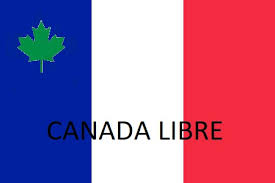THE ECONOMIST JUST DOESN'T GET IT
The British-based The
Economist, widely considered to be a sort of Bible in the world of contemporary
capitalism, just published a very interesting article about the growing rivalry
between the United States of America and the People's Republic of China.
It is very enlightening and
well-informed and may constitute the way the Western world see the enfolding
event. Yet, a few notes and corrections are in order.
Some are somewhat minor.
The article seems to imply that Hong Kong is not truly inside the political
borders of continental China. It is true that it is a special administrative
territory, with a autonomous status negotiated between the Chinese and the
British governments before the 1997 reintegration with China, and supposedly guaranteed
for many decades. It is also true China didn't remain true to its word, and
engineered a crackdown resisted by most of the population. Still, the territory
is undeniably an integral part of China.
More importantly, the
article downplays the threat of war in Taiwan. China will quite probably try to
grab back the island, seen as a rebellious province, in the coming years or
decades. It is probably just a matter of time.
It must be said that the
Chinese civil war of the first half of the XXth century is not yet over. There
is still a last chapter to write about it, before closing that major period of
history. The victory of the Communists led by Mao Zedong over the Nationalists
led by Chiang Kai-Chek didn't happen in 1949, as commonly believed, It really
happened in 1950, when the People's Liberation Army took the island of Hainan,
the next biggest in China, located to the south-west of Taiwan, not very farm
from northern reaches of Vietnam. That event is largely forgotten today.
Hainan is close to the
peninsula that lies to the south of Zhanjiang, the southernmost main naval base
of the present Chinese Navy (PLAN), in Guangdong, and it was thus relatively easy for the
Communists to land on the island and captured it. At that time, only the
relatively large width of the Taiwan Strait saved Chiang Kai-Chek and its
forces of the Kuomintang, that and the strength of the US Navy, America being
of course closely allied with the Nationalists. That much is clear in
retrospect.
Another weakness is that the article seems to misunderstood the real
nature of the reconfiguration of alliances and coalitions presently taking
shape between the two economic and military giants. The number of countries
leaning strongly, moderately or slightly toward the United States, such as
presented by The Economist, is mainly a reflection of what the Americans, and
the Western World in general, presently expect or wish.
The end result of the current reconfiguration of forces, in what is
beginning to be a bipolar world, even taking into account all the countries
that will choose to be as neutral or no-involved as possible, or try to be, may
eventually prove to be a rude awakening for some...
* * *
https://www.economist.com/leaders/2023/03/30/why-the-china-us-contest-is-entering-a-new-and-more-dangerous-phase




Commentaires
Enregistrer un commentaire
Bonjour, tous les commentaires sont acceptés, dans la mesure où ils sont d'ordre professionnel. Insulteurs s'abstenir...